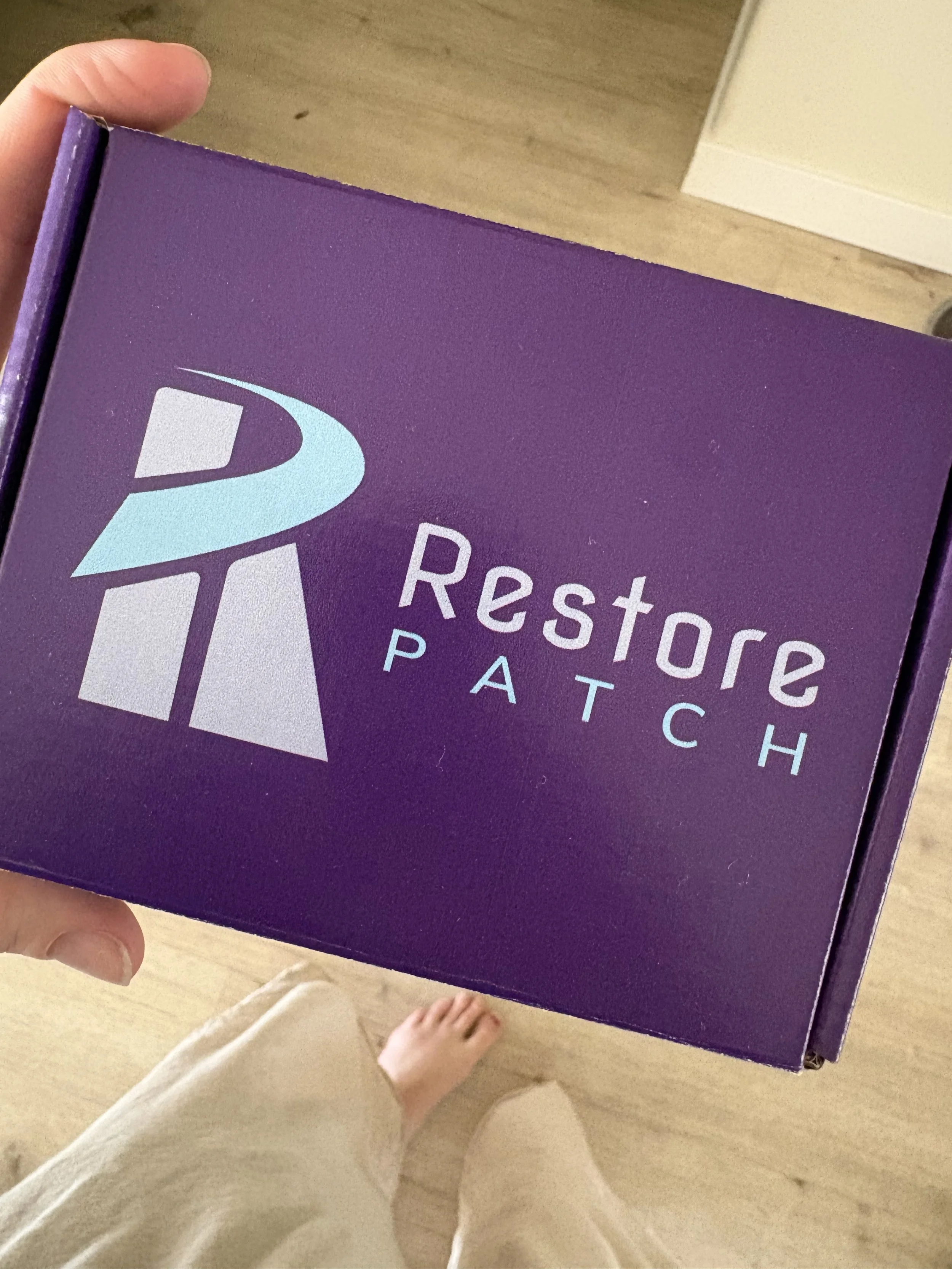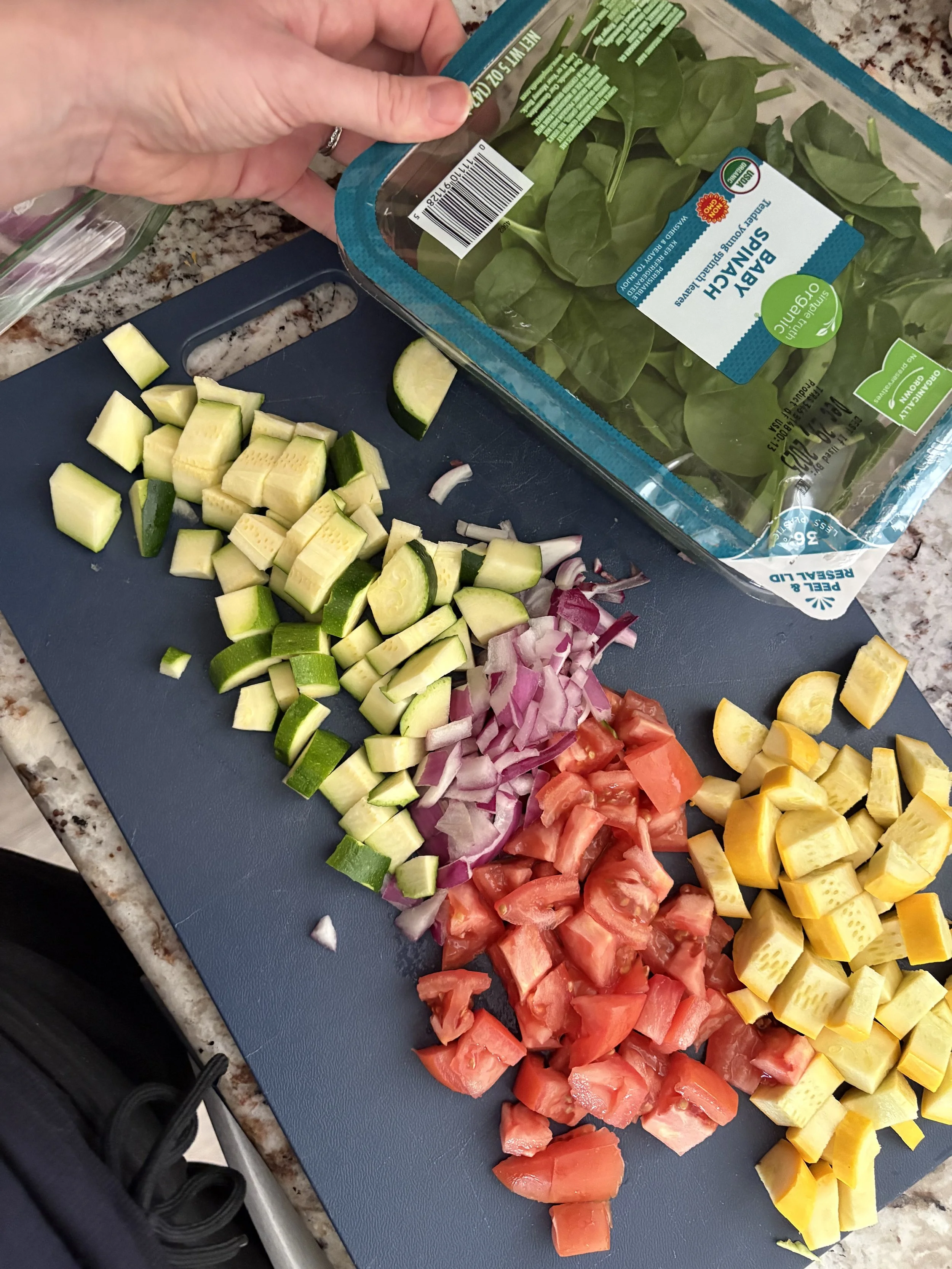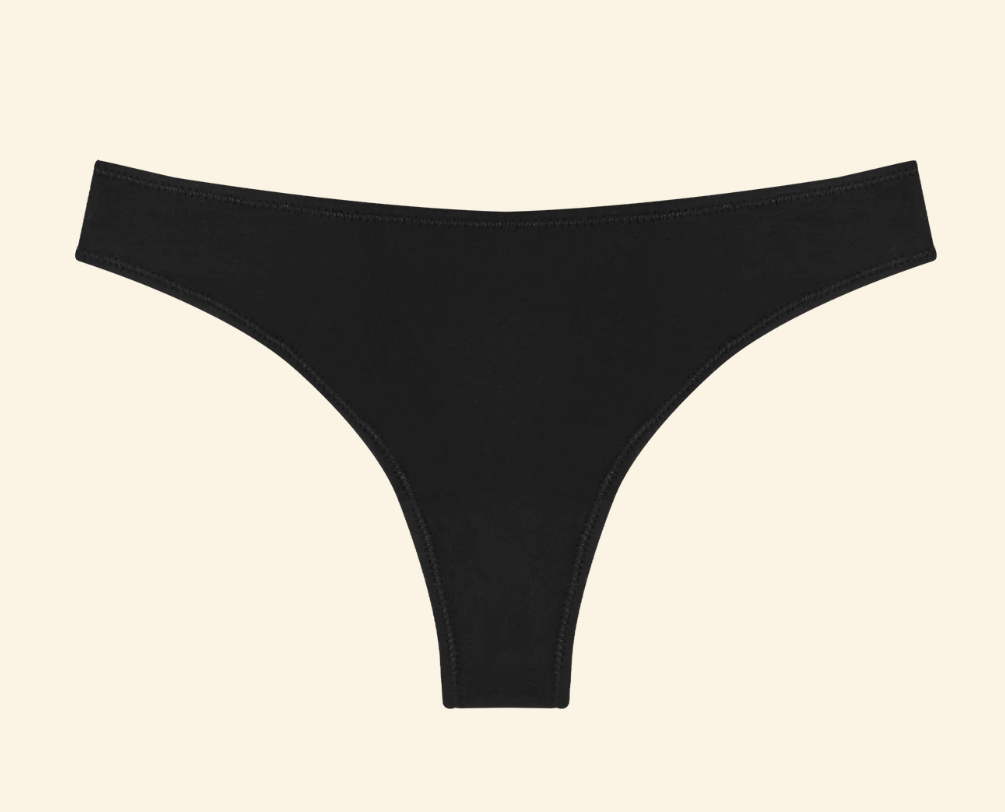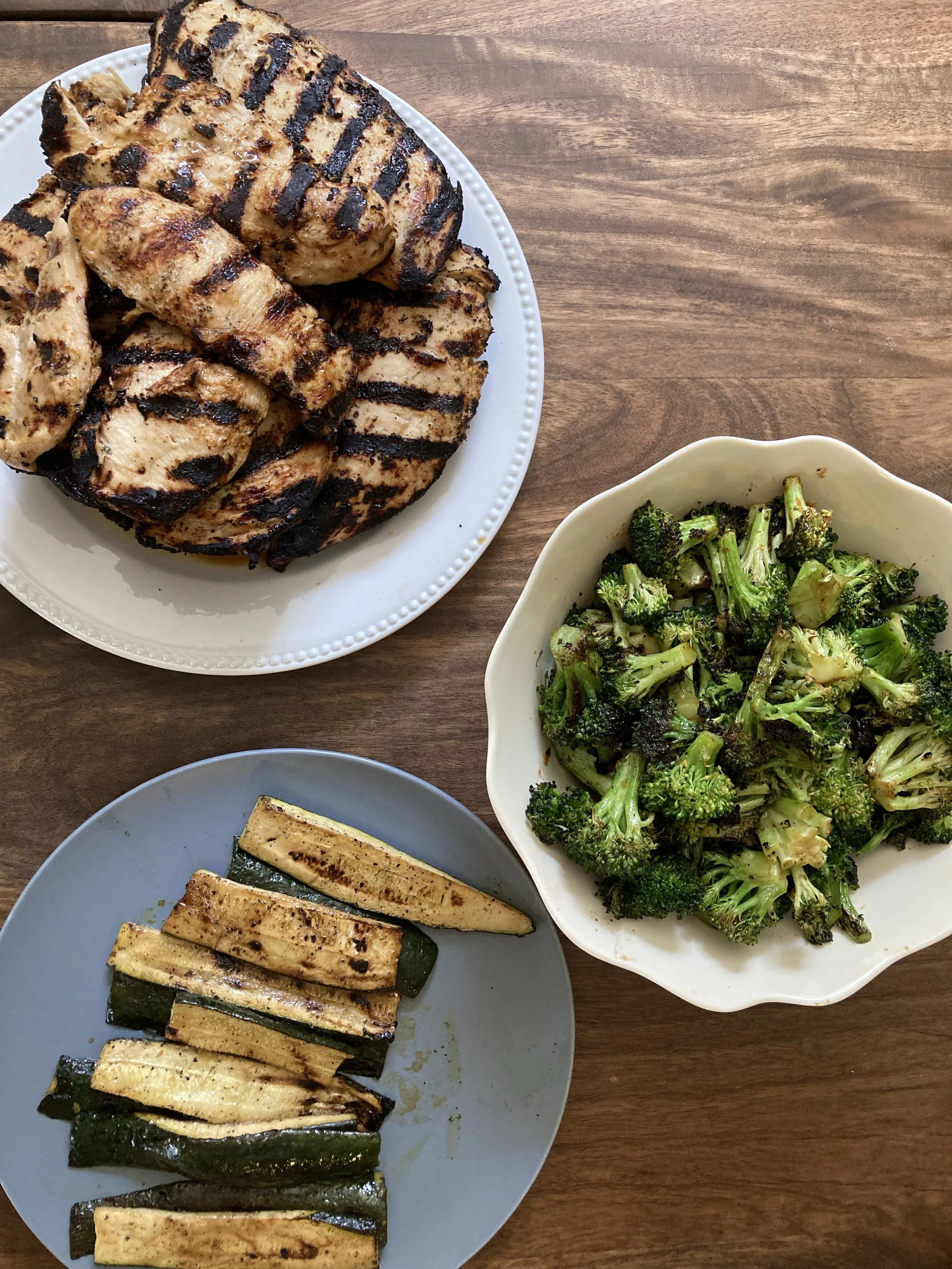The Best Healthy Protein Foods to Have on Hand
Are you eating enough protein? if you’re anything like most women.. probably not 😬
This post will dive into all your protein questions- why?how much? and what kinds?
For as long as I have been intentional about food and nutrition, I can remember protein always being the hard piece for me to tackle. Unlike carbs and fats which I feel like are really quick and easy to incorporate into meals (grab an apple or cook in some extra butter), protein often requires a bit more prep work.
On top of that, most people are not eating enough protein day to day. Then, when they try to hit certain grams of protein throughout the day, it is even harder to achieve.
This post will dive into the importance of protein, and my favorite high-protein foods to keep on hand!
Health Benefits of Protein
Protein is so important for our overall health and wellness! Not only does it help us build muscle, provide essential amino acids, and support energy levels, but it has also been shown to help support healthy weight loss.
Protein for Muscle Building
Did you know that building muscle helps to increase your metabolism? It also helps to prevent osteoporosis (weakening bones), prevent injuries, improve heart health, and manage healthy blood sugar levels. In order to build muscle, your body needs the right building blocks (or amino acids) which are found in protein. If your fitness goals are to maintain muscle mass, you will still need to keep your protein levels up to prevent your body from breaking down muscle tissue.
Protein for Blood Sugar Balance
Studies have shown that eating enough high-quality protein with breakfast can help to balance blood sugar levels and lower hunger the rest of the day! If you are struggling with any hormone imbalance, poorly regulated blood sugar, or inflammation, adopting a healthy, protein-rich breakfast may be a great place to start towards improving your health.
Protein for Skin and Beauty
While protein helps to promote good health, it is also well known for its benefits with health and beauty. Protein (especially proteins like gelatin and collagen) help to slow down signs of aging, promote good skin health and healing, and build strong hair and nails. I have worked with several coaching clients that noticed having weak, brittle, or peeling nails, and hair that always broke and couldn't grow long. Several months after working together and incorporating more protein-rich foods, they noticed improvements to both their internal and external health.
Best Sources of Protein
I am always an advocate of getting your macronutrients (and micronutrients) through whole foods rather than supplementation. Protein powders can be a great addition if you are needing the convenience, but the foundation of your daily protein should be coming from whole foods. (if you want a great, clean protein powder option- keep reading!) Whole food sources of protein most often are found in high-quality animal products. These food sources are high in bio-available protein, are rich in b vitamins, and are great choices as part of a healthy diet.
Animal- based Protein Sources
Whole eggs + egg whites- I would say 99% of the time I have some type of eggs in my breakfast. I usually keep it easy and scramble them with breakfast sausage and eat with sourdough toast or fresh fruit. Simple, whole foods that help to nourish my body and balance my blood sugar the rest of the day. While egg yolks contain great vitamins and healthy fats, for some people it is better to limit the amount of egg yolks they consume. In that case, you can use more egg whites than whole eggs so that you are not missing out on any of the protein content!
Related Reads:
Cottage Cheese- maybe one of the most underrated dairy products imo 🤷🏻♀️ Cottage cheese is great on its own, don't get me wrong, but it can be added into so many different things too! I love mixing it into my scrambled eggs in the morning, or adding into sourdough pancake batter for added protein. I have also thrown it into the blender with other cheeses to make a whipped ricotta sauce to throw on top of pasta. But I also love having it on its own or with some crackers for a quick and easy (and well-balanced!) snack.
Greek yogurt- Greek yogurt is higher in protein than standard yogurt and is a great way for quick and easy protein! I love making a greek yogurt bowl with fresh fruit, honey, and granola on the mornings when I want something other than eggs for breakfast. It also makes for a great snack or greek yogurt bark as a treat!
Tuna- I love Safe Catch tuna because they sustainably catch their tuna and test every batch for mercury levels. Tuna and other canned fish can be an excellent protein source for on the go, or quick and easy work meals with minimal prep.
Sardines- I regularly purchase sardines from thrive market and have them in the pantry for a quick, on the go snack option. I will often eat half a can with some crackers, or I will eat a whole can as part of a rice bowl or salad. They not only get in plenty of protein, but they are a great source of heart-healthy and anti-inflammatory omega 3s.
Well-sourced animal meats- The gold-standard for animal products is finding something grass-fed and finished and pasture raised. This ensures that the animal was fed a diet closest to what it would in nature, and has best ratio of fatty acids for your health. But if you do not have access to these types of meat, do what you can! I am all about prioritizing your mental and holistic health before trying to attain a "perfect" diet.
Pro-tip: meal prep easy animal proteins in bulk! Sometimes this looks like me roasting a whole chicken or cooking up several pounds of ground beef. They I use this throughout the week as I incorporate it into a meal! I can easily warm it up and throw it into a bowl, taco, sandwich, wrap, or salad without having to cook anything else! I find it makes meal times soo much easier and convenient!
Most everyone is familiar with eating lean proteins like chicken breast and lean cuts of beef, but there are so many other cuts of meat that have just as much protein and a varied assortment of amino acids . Some alternatives to lean meat are gelatinous cuts like beef cheeks, ox tail, and lamb shanks. These cuts are often a more budget-friendly option for great sources of protein!
Lunch meat- so many lunch meats that you can buy in the store are pretty garbage with tons of artificial colors, preservatives and flavorings. My favorite brand is True Story lunch meats! They are all well-sourced without any of the junk. I always have this on hand for sourdough sandwiches or wraps, to throw into a charcuterie snack board, or to cut up and throw into a salad.
Plant-based protein options:
None of the options above would fit into the diet of someone following a vegan diet. And while I do not personally follow veganism, or generally recommend it due to how restrictive it can be and lacking in essential nutrients, I know that it is followed by many people for ethical or spiritual beliefs. Here are some of my favorite protein-options for someone who chooses to prioritize more plant-based protein options.
Also, as a general rule of thumb and good idea, I would recommend anyone who is eating vegetarian or vegan to work closely with a registered dietician or medical provider. They can help to ensure you are getting all of the essential nutrients and adequate protein levels for your body and health goals.
Lentils- back in 2017 I traveled to India where, for one month, I followed a vegan diet (I was going to a yoga school and the ashram only served vegan foods). During that time I ate more lentils than I have at any other point in my life 😅 Now I don't eat them nearly as often, but I do enjoy them on occasion. Unlike beans, they have lower amounts of phytates making them easier to digest! To further improve digestion, I always make sure to soak them well before cooking. This also helps your body to absorb the nutrients more effectively.
Beans- Again, make sure to soak these very well and cook thoroughly to help your body digest and absorb the nutrients. I love making white chicken chili in the fall and winter as a hearty, nourishing and protein-rich meal. (the fact that I can cook it in the crock pot makes it even better!)
Nutritional yeast- I wish more people talked about nutritional yeast! It is a powerhouse of b vitamins and can be a great supplement for people following a vegetarian or vegan diet. It can also be a great addition for people who eat meat and are still needing additional support. I love to sprinkle this on top of rice bowls for a more savory, cheesy flavor.
Hemp seeds- These are easy to add into yogurt bowls or smoothies, and offer 9 grams of protein for a 3 tablespoon serving. They are rich in magnesium, selenium, iron and zinc and are really convenient for adding quick protein and healthy fats to a snack or meal!
Spirulina- This is considered another superfood and great option for plant protein. For 2 tablespoons you get 8 grams of complete protein and over 95% of your daily copper needs! It also has been shown to help boost your immune system. You can easily incorporate this into a yogurt bowl (coconut yogurt is a great option for someone following a vegan diet!) or smoothie.
Quinoa- A more protein-rich alternative to rice (Since I consume animal products, I usually cook my rice or quinoa in bone broth to add even more nutrients and protein)
Protein Powders and Supplements
Okayy, I told you I would get to this! As mentioned before, I am always an advocate for prioritizing whole food nutrients first. But sometimes supplements can help us to fill in the gaps! This is where high-quality supplements from reputable sources can come into play to help support a healthy diet. These are some of my favorite options!
Protein Powders + Bars
ALOHA protein powder + bars - i’ll be honest.. I have tried a lot of protein bars and powders over the last 12 or so years. And there are very very few that I have been able to eat and not only enjoy, but digest well. You see, many protein bars are unfortunately packed with a whole lot of preservatives and additives to make them more shelf stable. Some people tolerate these just fine, but I personally do not.
I originally found ALOHA products through Thrive Market and purchased them for years. But then I found out you could set up auto-ship and save an additional 25% off your personalized bundle 👀 and i’m nothing if not a fan for a good deal.
I love that they’re B Corp certified, stick to whole natural ingredients, and are a nutritious source of protein I can keep on hand.
Perfect Supplements Bovine Collagen Powder and Gelatin- remember how I mentioned the benefits of eating gelatinous cuts of meat for a more balanced assortment of amino acids in your diet? These are two supplements that can help you get there if you’re not interested in eating beef cheeks or sipping bone broth 😉 I regularly use collagen in my coffee and have noticed such an improvement in the health of my skin, hair, and nails!
Related Reads:
How much protein should I be eating?
The hard part about health and nutrition is that everything is so nuanced. And if you are working with a provider, trainer, or coach that is giving out random blanket statements without asking your personal health journey or history, maybe take their advice cautiously 🤷🏻♀️
As a general rule of thumb though, most registered dieticians go off of the RDA (recommended dietary allowance) that is set at 0.8 grams/kilogram of body weight. It is also important to mention that these are recommendations for the average, sedentary adult. Some studies have questioned this number though and said it should be closer to 1.0 grams/kilogram of body weight.
So what about if you are healthy, active and looking to build and maintain muscle mass? Or what if you are pregnant, breastfeeding, or trying to conceive?
Some studies have shown better muscle building, body composition, and energy levels with protein levels closer to 1.2 grams/kilogram (or 0.54 gram/lb) of body weight upwards of 2.4 grams/kilogram (or 1.1 gram/lb) of body weight. Again, these ranges are subject to your diet and health history and personal health goals.
I am also not a dietician or medical provider and this is not medical advice- just personal research that I am sharing! Make sure to do your own due diligence with your health and speak with a trusted health professional with your health concerns.
My inbox is always open for questions, and I love giving recommendations to sources for further research and support beyond my scope as a registered nurse and health coach.
Kaelyn

















What is self-care actually?? This post explores what actually supports our wellness.. and all ideas shared take 5 minutes or less 👏